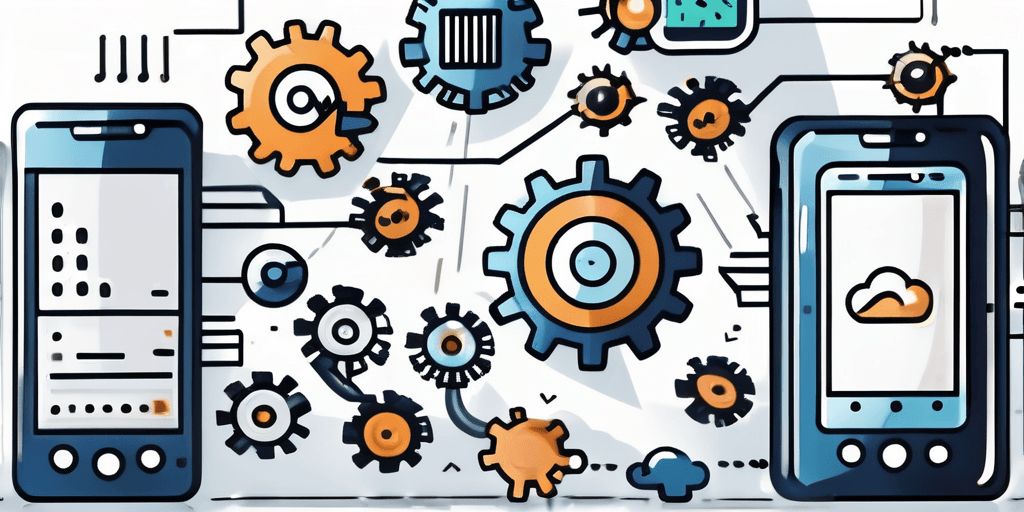SMS Marketing Automation has become an essential strategy for businesses looking to engage with their customers effectively. In this ultimate guide, we will explore everything you need to know to implement and optimize your SMS marketing automation campaigns. From understanding the concept of SMS marketing automation to developing an effective strategy and measuring your success, we’ve got you covered.
Understanding SMS Marketing Automation
What is SMS Marketing Automation?
SMS Marketing Automation refers to the process of automating various aspects of your SMS marketing campaigns. It goes beyond sending simple bulk SMS messages and allows businesses to send targeted and personalized messages to their customers at specific times based on their behavior and preferences.
Implementing SMS Marketing Automation involves utilizing specialized software or platforms that enable businesses to set up automated workflows for their SMS campaigns. These workflows can include triggers based on customer actions, such as website visits, purchases, or interactions with previous SMS messages. By leveraging automation, businesses can streamline their marketing efforts and ensure timely and relevant communication with their audience.
Benefits of SMS Marketing Automation
There are numerous benefits to implementing SMS marketing automation for your business. Firstly, it allows you to save time and resources by automating repetitive tasks. Secondly, it enables businesses to create more personalized and relevant messages, leading to improved customer experiences. Additionally, SMS marketing automation helps increase customer engagement and conversions.
Another key advantage of SMS marketing automation is the ability to track and analyze campaign performance in real-time. By monitoring metrics such as open rates, click-through rates, and conversion rates, businesses can gain valuable insights into the effectiveness of their SMS campaigns. This data-driven approach allows for continuous optimization and improvement of marketing strategies, ultimately leading to better results and ROI.
Setting Up Your SMS Marketing Automation
Choosing the Right SMS Marketing Automation Tool
When it comes to setting up your SMS marketing automation, choosing the right tool is crucial. Look for a tool that offers features such as segmentation, scheduling, and integration with your existing CRM system. It should also provide analytics to track the success of your campaigns and A/B testing capabilities for optimization purposes.
Furthermore, consider the scalability of the tool to accommodate your business growth. A good SMS marketing automation tool should be able to handle an increasing volume of messages as your subscriber list expands. Look for a tool that offers customizable options to tailor your campaigns to different customer segments, ensuring personalized and targeted messaging.
Configuring Your SMS Marketing Automation System
Once you’ve selected your SMS marketing automation tool, it’s important to configure it properly to ensure optimal performance. Define your target audience segments based on demographics, preferences, and behavior. Create engaging SMS templates and set up automated triggers for sending messages based on specific events or actions. Test your automation workflows to ensure everything is working smoothly before launching your campaigns.
Moreover, consider setting up drip campaigns to nurture leads over time and build customer relationships. Drip campaigns allow you to send a series of automated messages at predefined intervals, guiding leads through the sales funnel. By strategically planning your drip campaigns, you can deliver relevant content to your audience at the right time, increasing engagement and conversions.
Developing an Effective SMS Marketing Strategy
Understanding Your Audience
An effective SMS marketing strategy starts with a deep understanding of your target audience. Conduct market research and analyze customer data to identify their preferences, pain points, and communication preferences. This information will help you tailor your messages and create relevant offers that resonate with your audience.
Furthermore, segmenting your audience based on demographics, behavior, or purchase history can allow for more personalized and targeted messaging. By understanding the different segments within your audience, you can send more tailored offers and promotions that are likely to drive higher engagement and conversions.
Crafting Engaging SMS Messages
The success of your SMS marketing automation campaigns relies heavily on crafting engaging messages. Keep your messages concise and to the point, as SMS has a limited character count. Personalize your messages by including the recipient’s name and relevant details. Use clear and compelling calls-to-action to prompt your recipients to take the desired action, whether it’s making a purchase or visiting your website.
In addition to personalization, consider incorporating multimedia elements such as images or GIFs to make your messages more visually appealing. Visual content can help capture the recipient’s attention and make your SMS stand out in a crowded inbox. However, ensure that any multimedia elements you include are optimized for quick loading times to provide a seamless user experience.
SMS Marketing Automation Best Practices
Timing Your SMS Messages
Timing plays a crucial role in the success of your SMS marketing automation campaigns. Analyze your audience’s behavior and preferences to determine the optimal times to send messages. Avoid sending messages too early or too late, as it may result in low open rates or even annoy your recipients.
Consider conducting A/B testing to identify the most effective time slots for sending your SMS messages. By testing different timings, you can gather valuable data on when your audience is most responsive. This data-driven approach can help you refine your SMS marketing strategy and improve engagement rates over time.
Maintaining Compliance with SMS Regulations
Compliance with SMS regulations is essential to avoid legal troubles and maintain the trust of your recipients. Familiarize yourself with the SMS marketing regulations and guidelines in your target market. Ensure that you have obtained proper consent from your recipients and provide an easy opt-out mechanism in every message you send.
Regularly review and update your SMS marketing practices to align with any changes in regulations. Staying informed about the evolving landscape of SMS marketing regulations can help you avoid potential fines and penalties. Consider seeking legal advice or consulting with compliance experts to ensure that your SMS marketing campaigns remain compliant and ethical.
Measuring the Success of Your SMS Marketing Automation
Key Performance Indicators for SMS Marketing
Measuring the success of your SMS marketing automation campaigns is crucial for optimizing your strategy. Monitor key performance indicators such as open rates, click-through rates, conversion rates, and the overall ROI of your campaigns. Use these metrics to uncover insights and make data-driven decisions for continuous improvement.
Tracking open rates provides valuable insights into how engaging your SMS messages are to your audience. A high open rate indicates that your messages are resonating with your customers, while a low open rate may signal the need for more compelling content or better timing. Click-through rates, on the other hand, measure the effectiveness of your call-to-action within the message. By analyzing these rates, you can refine your messaging to drive higher engagement and conversions.
Analyzing and Improving Your SMS Marketing Strategy
Analyzing your SMS marketing data and making improvements is an ongoing process. Regularly review your campaign performance and identify areas that need optimization. Test different message formats, offers, and timing to find the most effective combinations. Continuously listen to customer feedback and adapt your strategy accordingly to stay ahead of the competition.
Moreover, segmenting your audience based on demographics, behavior, or preferences can significantly enhance the effectiveness of your SMS marketing campaigns. By targeting specific groups with tailored messages, you can increase relevance and engagement, leading to higher conversion rates. Additionally, personalizing your messages with the recipient’s name or past purchase history can create a more personalized experience, fostering stronger customer relationships.
In conclusion, SMS marketing automation holds immense potential for businesses to engage with their customers effectively. By understanding the concept, setting up the right tools, developing a strategic approach, and continuously measuring and improving, you can harness SMS marketing automation to drive customer engagement, increase conversions, and achieve your marketing goals.
Ready to take your SMS marketing to the next level? Partner with Emarketed, where our 25 years of digital marketing expertise and innovative use of AI & Automation will amplify your campaigns. Don’t miss the opportunity to work with a team that values partnership and offers the expertise of an entire in-house team at a fraction of the cost. Book a meeting today and let’s start crafting your personalized SMS marketing automation strategy together.

